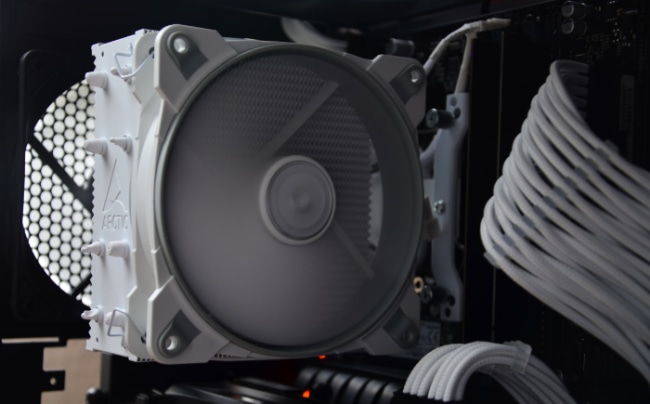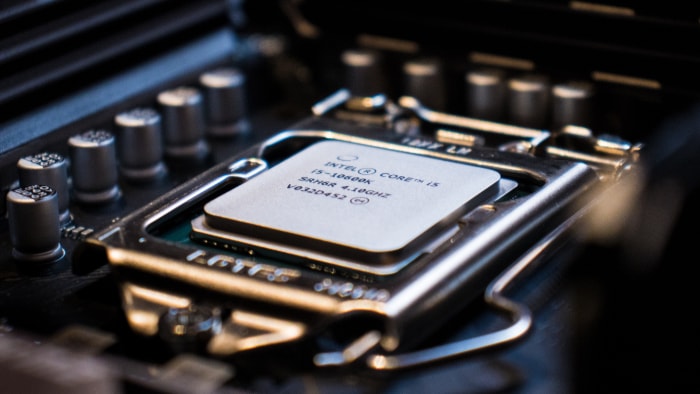Are CPU Coolers Universal?
Professionals with processor-intensive work know how important it is to have CPU coolers as part of their computer setup. Without them, their CPU may heat up to dangerously high levels and damage their hardware.
Given how popular this device is, many people often have many valid questions about it. One such question is whether or not CPU coolers can be used universally on all CPU devices.
Understanding CPU Coolers
CPU coolers are critical pieces of hardware that, as their name makes it apparent, serve by keeping the temperature of the CPU at bay. CPUs, be they laptops or computers, are safe to operate only under a certain temperature limit.
Should the temperature of the CPU exceed this limit, thermal throttling will be triggered, and it will lead to a noticeable reduction in the clock speed of your processor temporarily.
Typically, CPU coolers will do their work in one of these two ways, first, through an air-cooling system. This will consist of a heat sink and a fan convo that sucks the heat from atop the CPU (or from the base) and pushes it away into the surrounding air.
This solution is extremely popular, and it is often selected by most people whose work demands the use of such accessories. While the other sort of CPU cooling system employs liquid rather than air to remove heat, it undeniably provides some considerable benefits over the air-cooling method.
Liquid-based cooling systems for CPUs often make a lot less noise while they're at work. The fans on these liquid coolers typically house considerably bigger fans that rotate at relatively much lower rates while successfully absorbing the CPU's heat.
Additionally, liquid cooling systems cool CPUs work far more effectively than air-coolers because water is a stronger conductor of heat than air due to the large concentration of hydrogen bonds in a liquid.
Do They Work the Same on All Computers?
To put it simply, no.
As technology has progressed, manufacturers have developed newer methods to make their CPU coolers increasingly thermally efficient to match the higher clock speeds and increased heat production from the computer devices of today.
That being said, you need to understand that CPU coolers do not come with a one-size-fits-all solution to tame all CPUs.
This is because CPUs come in so many different varieties nowadays that you need special CPU coolers designed for each of their individual needs.
For example, you may need CPU coolers of a larger size for larger CPUs, or you may need to pair a large heatsink fan with a couple of smaller fans to keep a CPU within the safe operating temperature threshold.
Can CPU Coolers Be Used Universally?
As you might've guessed from our discussion in the previous section, CPU coolers cannot be used universally for all devices.
They can only be used on CPU devices with similar levels of cooling needs because CPU coolers are designed to cater to specific kinds of heat levels and, therefore, have very specific heatsinks or fan configurations.
However, this is nothing to be worried about. Fortunately for you, each different CPU manufacturer develops its own line of CPU cooling products.
This means that, regardless of the budget bracket you're in, you'll have plenty of competitive CPU cooling options to choose from. So, you can be sure that you'll find the perfect one for your computer.
Also, now that you know that all CPU coolers aren't built to work with all CPU devices, you should step back from basing your CPU cooler purchase decision on secondary level considerations like color and design.
Instead, you should focus on primary-level considerations, i.e., considerations that speak to functional utility instead of design, to make an informed decision. While doing this, you might want to check the manufacturer's compatibility charts to help with your decision.
Addressing Some Common Queries
How Do I Check if a Particular CPU Cooler Will Meet My CPUs Needs?
With the sheer amount of product options available in the market, one thing is for sure: you will find the right product for you at any given price range. If you're stuck between options and can't figure out which CPU cooler best meets your computer's needs, make it a point to check the manufacturer's compatibility charts and match the specs of your CPU cooler to your CPU.
This way, you will only purchase coolers designed explicitly for your CPU's needs. However, we understand that spec compatibility sheets can get pretty complicated.
So, when in doubt, you can always call your CPU cooler’s manufacturer’s customer service team to assist you with your purchase.
On Average, How Long Will a CPU Cooler Last?
The average lifespan of a CPU cooler is five years with proper maintenance. However, this life can be significantly reduced if one does not care for their cooler properly.
Typically, though, those who work with processor-intensive computing operations daily usually buy the latest versions of CPU and CPU coolers well before their current devices hit the 5-year age mark.
How Should One Maintain Their CPU Cooler to Prolong Its Life?
While the correct form of maintenance will depend on your product’s specific needs, a general guideline for maintaining your CPU cooler is to clean it every 3-4 weeks to free it of any dirt and debris that can weigh down its performance over time.
The specifics of each device's maintenance needs will usually be given in its manual.
Conclusion
To sum it all up, CPU coolers are essential pieces of tech accessories that are a must-have for all individuals whose computing work demands high-intensity processing. This includes people like gamers, high-quality video editors, and more.
A common misconception that many people have regarding CPU coolers is that this device (whichever one you have) can be used universally for all of your computer or laptop cooling needs.
They think that since the objective is to cool down the CPU and all CPU coolers perform this function, any CPU cooler can be used on any computer.
Unfortunately, this is far from the truth because each computer (depending on its size, processing capabilities, and its in-built cooling system) will have its own specific cooling needs, which simply can’t be met by any CPU cooler.
Instead, coolers that are specifically designed to handle that sort of heat should be used. Luckily, though, there are numerous CPU cooling brands in the market today, and with the sheer number of options available in the market, you can be sure that you'll get the perfect CPU cooler for yourself at any given price range.
Lastly, you should keep these three essential things in mind:
- When confused about which CPU cooler to get, use a compatibility chart to inform your decision. If you’re still confused after that, call up the customer service team of the product’s manufacturer to assist you with the purchase.
- The average lifespan of a CPU cooler is five years with proper maintenance. However, this life can be significantly reduced if one does not care for their cooler properly.
- Clean your CPU cooler every four weeks for proper maintenance and read the manual that comes with it to learn about the dos and don’ts of your device’s care.




